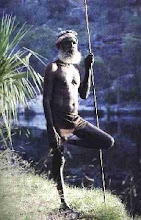
Early 1965 Dr King went to the White House to speak with LBJ about getting blacks registered to vote, he said there would be no peace till they got the vote. Johnson said he would not be able to pass a 1965 civil rights bill because there had already been one in 1964 ending segregation . King responded by hosting demonstrations in association with other organizations in Selma, Alabama:
Our "Bloody Sunday"

On February 18 John Lewis, a 25-year-old son of an Alabama sharecropper and leader of the Student Nonviolent Coordinating Committee (SNCC), organized a demonstrative march to Selma to bring attention to the fact that only 2% of illegible blacks in Alabama were registered to vote. Govener George Wallace ordered the march be stopped without a go from higher ups. A young protestor, Jimmie Lee Jackson, was shot and killed. President Johnson and the nation watched state police attack the crowd on national television.
footage
Within 48 hours, demonstrations in support of the marchers were held in 80 cities and on March 7 some 500 demonstrators, led by SCLC leader Hosea Williams and SNCC leader John Lewis, began the 54-mile march to the state capital. They were, again, stopped by Alabama state troopers who attacked them with nightsticks, tear gas, and whips after they refused to turn back. Several of the protesters were severely beaten, and others ran for their lives.
On March 9, King more than 2,000 marchers, black and white successfully from Selma to Mongumary.
LBJ's speech
March 15, 1965, a week after deadly racial violence erupted in Selma, Alabama, as African-Americans were attacked by police while preparing to march to Montgomery to protest voting rights discrimination.
 Quotes/ Summary:
Quotes/ Summary:"Our lives have been marked with debate about great issues; issues of war and peace, issues of prosperity and depression. But rarely in any time does an issue lay bare the secret heart of America itself. Rarely are we met with a challenge, not to our growth or abundance, our welfare or our security, but rather to the values and the purposes and the meaning of our beloved Nation....
The issue of equal rights for American Negroes is such an issue. And should we defeat every enemy, should we double our wealth and conquer the stars, and still be unequal to this issue, then we will have failed as a people and as a nation....
There is no moral issue. It is wrong—deadly wrong—to deny any of your fellow Americans the right to vote in this country....
Their cause must be our cause too. Because it is not just Negroes, but really it is all of us, who must overcome the crippling legacy of bigotry and injustice. And we shall overcome...
I want to be the President who helped to feed the hungry and to prepare them to be taxpayers instead of taxeaters."
In 2000 President Clinton was the first President to retrace their steps: link
*** Connection to this years election link: Bill Moyers modern day reflection on Selma
Other Sources:
http://historicaltextarchive.com/sections.php?op=viewarticle&artid=613
http://www.jstor.org/pss/1032101
http://www.americaslibrary.gov/cgi-bin/page.cgi/jb/modern/selma_3


No comments:
Post a Comment